THREAD: trump bold peace deal halts
LifeLine™ Media threads use our sophisticated algorithms to construct a thread around any topic you want, providing you with a detailed timeline, analysis, and related articles.
News Timeline

AMERICAN DIPLOMACY Stops Bloody Border WAR: Hope Rises as India-Pakistan Ceasefire Holds
— India and Pakistan have agreed to stop fighting after weeks of deadly clashes along their tense border. The United States stepped in, with Secretary of State Marco Rubio and Vice President J.D. leading the talks to calm things down. This deal aims to keep two nuclear-armed countries from going to war.
Kashmir has been a trouble spot for decades, with both nations claiming it but only controlling parts. The latest violence had many worried that a bigger conflict could break out, putting millions at risk.
Thanks to strong U.S. leadership, both sides sat down for talks and agreed on a ceasefire. While this truce is meant to end the shooting and start real peace talks, some doubt it will last long.
The world is watching closely because of fears about nuclear weapons and unrest in South Asia. For now, America’s tough approach has brought hope that peace can hold in one of the world’s most dangerous places.
TRUMP’S $142 Billion Arms Deal Ignites Fury And Hope Worldwide
— President Trump has sealed a $142 billion arms deal with Saudi Arabia, shaking up global politics. The agreement brings advanced weapons sales and loosens sanctions on Syria. Some critics warn this could change the balance of power in the Middle East.
Supporters say closer ties with Saudi Arabia will create American jobs and help push back against Iran’s growing influence. Trump’s team calls it a big win for U.S. industry and national security. “America comes first,” one advisor said.
Other world leaders are worried about stability in the region and human rights concerns linked to the deal. The size of this agreement has put America’s foreign policy choices under a microscope again.
As debate continues, markets are watching for what happens next after this bold move. The future of U.S.-Middle East relations may depend on how things unfold from here.
TRUMP’S $142 Billion Arms Deal Sparks Fury And Hope Across The Globe
— Former President Donald Trump has sealed a massive $142 billion arms deal with Saudi Arabia. The agreement also comes with the easing of sanctions on Syria. This move has set off strong reactions worldwide, as people question what it means for peace and America’s future role in the Middle East.
Some critics warn that sending more weapons to Saudi Arabia could make the region even more unstable. They say it might lead to new conflicts and put American interests at risk. But supporters argue this deal will strengthen US-Saudi ties and help keep America safe by boosting its influence abroad.
In Europe, French right-wing leader Marine Le Pen was convicted of embezzling European Parliament funds. She received four years in prison, though two are suspended, and must wear an electronic monitor for two years. Le Pen also faces a five-year political ban, which could end her run for president in 2027. She calls the charges unfair and says they are politically motivated.
Elsewhere, India and Pakistan have agreed to a sudden ceasefire after talks led by the US — offering rare hope after weeks of violence between these nuclear neighbors. In Britain, political drama continues as recent legal decisions have caused rifts inside Reform UK. All these events show how leaders everywhere are facing tough questions at home and on the world stage.

TRUMP’S Bold Peace Deal Halts Nuclear Nightmare Between India-Pakistan
— India and Pakistan, both armed with nuclear weapons, have agreed to a sudden ceasefire after weeks of deadly fighting. Former President Donald Trump stepped in and brokered the deal, announcing it on social media. He praised both countries for showing “Common Sense and Great Intelligence.” The truce comes after a violent attack in Kashmir led to airstrikes, drone hits, and heavy shelling along the border.
Pakistani officials thanked Saudi Arabia and Turkey for helping with talks. Indian leaders confirmed that military commanders from both sides agreed to stop all attacks by land, air, and sea starting May 10. More meetings between top generals are planned to make sure the ceasefire holds.
The United Nations called the agreement a “positive step,” but violence didn’t stop everywhere. Explosions were reported in Kashmir just hours after the announcement. Both India and Pakistan blamed each other for breaking the new peace.
Even with this deal in place, tensions are still high over issues like control of Kashmir and water rights. Experts warn that more fighting could break out since neither side has backed down on key demands from during the conflict.

TRUMP’S Trade WAR Truce Sparks Surge in Asian Markets
— Asian stocks soared Tuesday after the U.S. and China agreed to a 90-day pause in their trade war. Both nations announced big tariff cuts. U.S. tariffs on Chinese goods dropped from as high as 145% to 30%. China lowered its tariffs on American products from 125% to just 10%.
This truce gives both sides more time for talks after meeting in Geneva. Experts say the deal was better than expected and calmed investors, but warn President Trump could still change course if needed.
Japan’s Nikkei index jumped nearly 2%. Automakers like Toyota and Suzuki led the gains, while Nissan shares rose too after news about major layoffs tied to restructuring.
South Korea’s Kospi index edged up by 0.2%. Investors are still careful about long-term risks, but for now, markets are responding with relief and optimism.
US DIPLOMACY STUNS World: Fragile India-Pakistan Ceasefire Sparks Hope and Doubt
— The United States has helped stop fighting between India and Pakistan after two tense days. Vice President Vance and Secretary Rubio spoke directly with both countries’ leaders, including Prime Ministers Modi and Sharif. The deal calls for an immediate end to violence and promises more talks soon.
Pakistan’s Prime Minister thanked U.S. leaders, saying America played a key role in making peace possible. This shows the Biden administration is taking a hands-on approach in South Asia.
The State Department shared details about the tough talks and new ways for India and Pakistan to communicate. The ceasefire is fragile but offers hope for peace in a region known for conflict.
Photos from the meetings show progress, but real peace will need the U.S. to stay involved — and both countries must be held responsible if things break down again.

US CEASEFIRE DEAL Stops Dangerous India-Pakistan Clash
— Quick action from the US, led by Vice President Vance and Secretary Rubio, brought an end to the worst fighting between India and Pakistan in years. Pakistan’s Prime Minister called it a “diplomatic breakthrough.” The new agreement hopes to calm tensions and start real peace talks. Both countries fired advanced missiles during the conflict. With both sides having nuclear weapons, many feared things could spiral out of control. Washington’s push for peace was key in stopping the violence. POLAND ERUPTS: MASSIVE ANGER OVER ILLEGAL IMMIGRATION SHAKES WARSAW
Huge crowds filled Warsaw as Poles protested illegal immigration from Russia and Belarus. Nationalist leader Karol Nawrocki is demanding tough border controls before next week’s election. Marchers say migrants should stay home and blame foreign powers for causing chaos. Many Polish voters now see immigration as a threat to their country’s safety. TRUMP DEMANDS 20,000 POLICE TO FIGHT NATIONWIDE CHAOS
Former President Donald Trump has called for 20,000 police officers to restore order across America after days of unrest. Chicago was hit hard by protests following a major bank robbery. Trump says only strong action will keep Americans safe on their own streets.
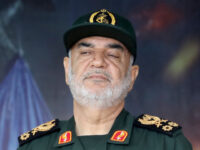
TRUMP STANDS Firm: Iran’S Chilling Threats Spark Urgent Nuclear Showdown
— President Trump’s team is back at the table with Iran, trying to stop their illegal nuclear plans. But Iran won’t talk directly. Instead, they send messages through Oman, showing they don’t want open talks.
The head of Iran’s Revolutionary Guard, a group the U.S. calls terrorists, threatened both America and Israel. He warned that if we make “the slightest mistake,” Iran will “open the gates of hell.” While he claims to prefer diplomacy, he says his country is ready for war.
Iranian state media tried to calm things down by saying they’d only hit back if attacked first. Still, their leader made it clear — anyone who strikes Iran will pay a heavy price.
This general has become more visible since President Trump ordered the strike on Soleimani in 2020. The new Quds Force leader stays out of sight, leaving many wondering about his real role in the regime.
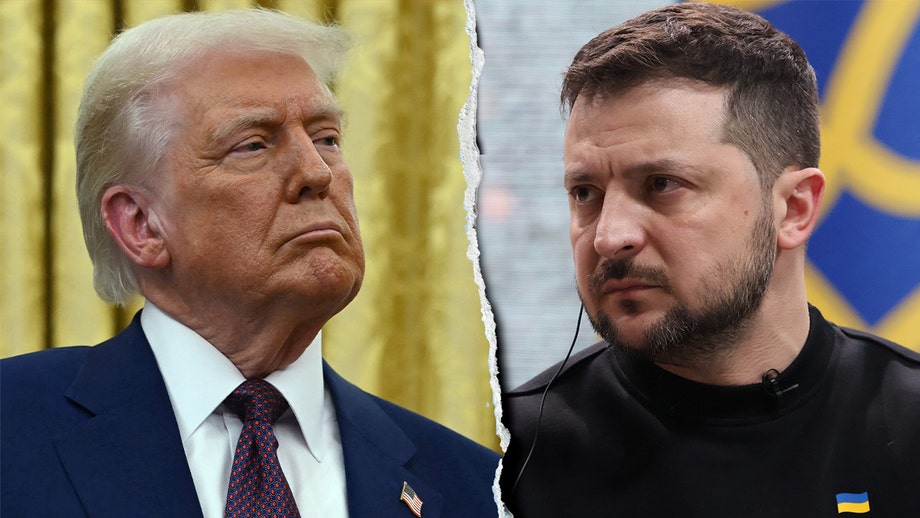
TRUMP and ZELENSKYY’S Hopeful Ceasefire Call: A Step Toward Peace
— President Donald TRUMP and Ukrainian President Volodymyr Zelenskyy had a “very good” phone call about a preliminary agreement with Russian President Vladimir Putin. Trump shared the news on Truth Social, highlighting that Russia and Ukraine’s requests align well. He stated, "We are very much on track.
Zelenskyy described the call as “positive, very substantive, and frank,” thanking Trump for productive teamwork in Jeddah. The Ukrainian leader is hopeful about achieving lasting peace with American leadership, believing cooperation with the U.S. could end the war this year.
Putin agreed to pause attacks on Ukraine’s energy infrastructure for 30 days. However, this does not include frontlines or civilian areas as initially hoped by Trump’s administration. Ceasefire talks continue as both nations strive for a peaceful resolution under U.S. guidance.
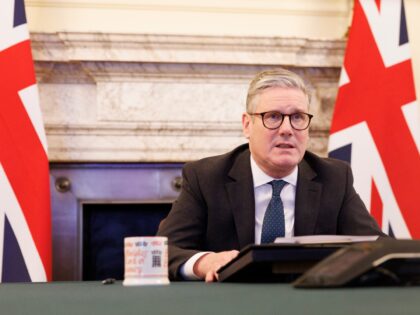
TRUMP vs PUTIN: The Dramatic Ukraine Ceasefire Standoff
— An upcoming virtual summit, led by Starmer’s “coalition of the willing,” will discuss military and financial aid for Ukraine. The meeting will also consider a peacekeeping mission if Russia agrees to talks.
About 25 countries, including European partners and Ukraine, plan to join. Notably missing is the United States, which has changed its stance on the war under President Donald Trump after his recent clash with Ukrainian President Zelenskyy in the Oval Office.
The U.S. proposed a 30-day ceasefire in Ukraine, backed by Zelenskyy but met with conditions from Putin. Secretary of State Marco Rubio expressed “cautious optimism” about Putin’s potential agreement after talks with U.S. envoy Steve Witkoff.
Starmer doubts Putin’s intentions and criticizes his delay tactics regarding Trump’s peace plan. He insists that concrete commitments are needed as Putin continues playing “pointless games” with ceasefire proposals, showing little seriousness about achieving peace.
UKRAINE’S BOLD Move: US-Backed Ceasefire Sparks Hope
— Ukraine has agreed to a U.S.-proposed one-month ceasefire with Russia, if Russia follows the terms. This follows talks with U.S. National Security Advisor Mike Waltz, Secretary of State Marco Rubio, and Saudi Foreign Minister Prince Faisal bin Farhan Al Saud. This is a crucial step amid rising tensions in the region.
The ceasefire proposal shows increased diplomatic efforts by various nations to stabilize Eastern Europe. Saudi Arabia’s involvement highlights its growing role in international peace efforts and may lead to more comprehensive negotiations in the future.
Ukraine’s decision reflects a strategic move towards diplomacy while being cautious about Russia’s commitment to the terms. As global attention turns to this truce, it’s crucial for both sides to adhere strictly for lasting peace prospects.
This development is key for ongoing talks about Ukraine’s conflict with Russia and could lead to stronger diplomatic resolutions if successful. The world watches closely, hoping for peace in this long-standing conflict zone.

US RESUMES MILITARY AID to Ukraine: A Bold Move Amid Ceasefire Talks
— The Trump administration has announced the immediate resumption of military aid to Ukraine. This decision aligns with Ukraine’s openness to a 30-day ceasefire, signaling a potential shift in the ongoing conflict. Delegations from both sides engaged in discussions for several hours, with more talks planned.
President Donald Trump is set to speak with Russian President Vladimir Putin about a possible ceasefire. Ukrainian President Volodymyr Zelensky has been invited back to the White House for further discussions. The Russian Foreign Ministry expressed willingness for continued dialogue with U.S. representatives, sparking hope for a peaceful resolution that respects Ukraine’s sovereignty.
Safety concerns have escalated following a tragic midair collision involving an Army helicopter and an American Airlines jet near Ronald Reagan Washington National Airport in January 2025. All 67 individuals on board both aircraft perished, prompting NTSB investigator Jennifer Homendy to urge the FAA to implement urgent safety measures immediately.
On the economic front, Asian markets are experiencing significant declines amid global sell-off trends impacting investor confidence worldwide. Japan, South Korea, and Taiwan saw market drops of about 2% as part of this broader financial downturn following the S&P 500’s worst day of the year on March 11th.

“TRUMP’S Bold Peace Plan with Russia and Ukraine Stirs EU Fears”
— European leaders are worried about President Trump’s efforts to broker peace between Ukraine and Russia. The EU’s top diplomat claims Russian President Putin is not interested in peace. Trump mentioned having “very good talks with Russia” but did not share details on any progress made.
NATO allies and long-time U.S. partners are frustrated by Trump’s remarks on Ukraine, seeing them as an attempt to improve ties with Moscow. EU High Representative Kaja Kallas stressed the need for dialogue but noted Russia’s reluctance for peace.
Trump held his first Cabinet meeting, stating NATO membership was not an option for Ukraine, which could change the conflict’s dynamics. Kallas urged more economic and political pressure on Russia to strengthen Ukraine both militarily and diplomatically.
As Trump and Ukrainian President Zelenskyy work towards a minerals deal, there is hope it might lead to ceasefire talks, though doubts linger about its effect on achieving lasting peace.

TRUMP and Zelenskiy’s BOLD Minerals Deal: A Game-Changer Without Security Guarantees
— President TRUMP announced that Ukrainian President Zelenskiy will visit Washington on Friday. The purpose of the visit is to sign a significant minerals deal. This follows a recent tense exchange between the two leaders.
The draft agreement focuses on critical minerals, crucial for various industries, but notably omits U.S. security guarantees for Ukraine. This omission may raise concerns about Ukraine’s strategic position in the region.
Despite previous tensions, both leaders seem eager to finalize this economic agreement. The deal highlights the importance of resource access over military assurances in current U.S.-Ukraine relations.
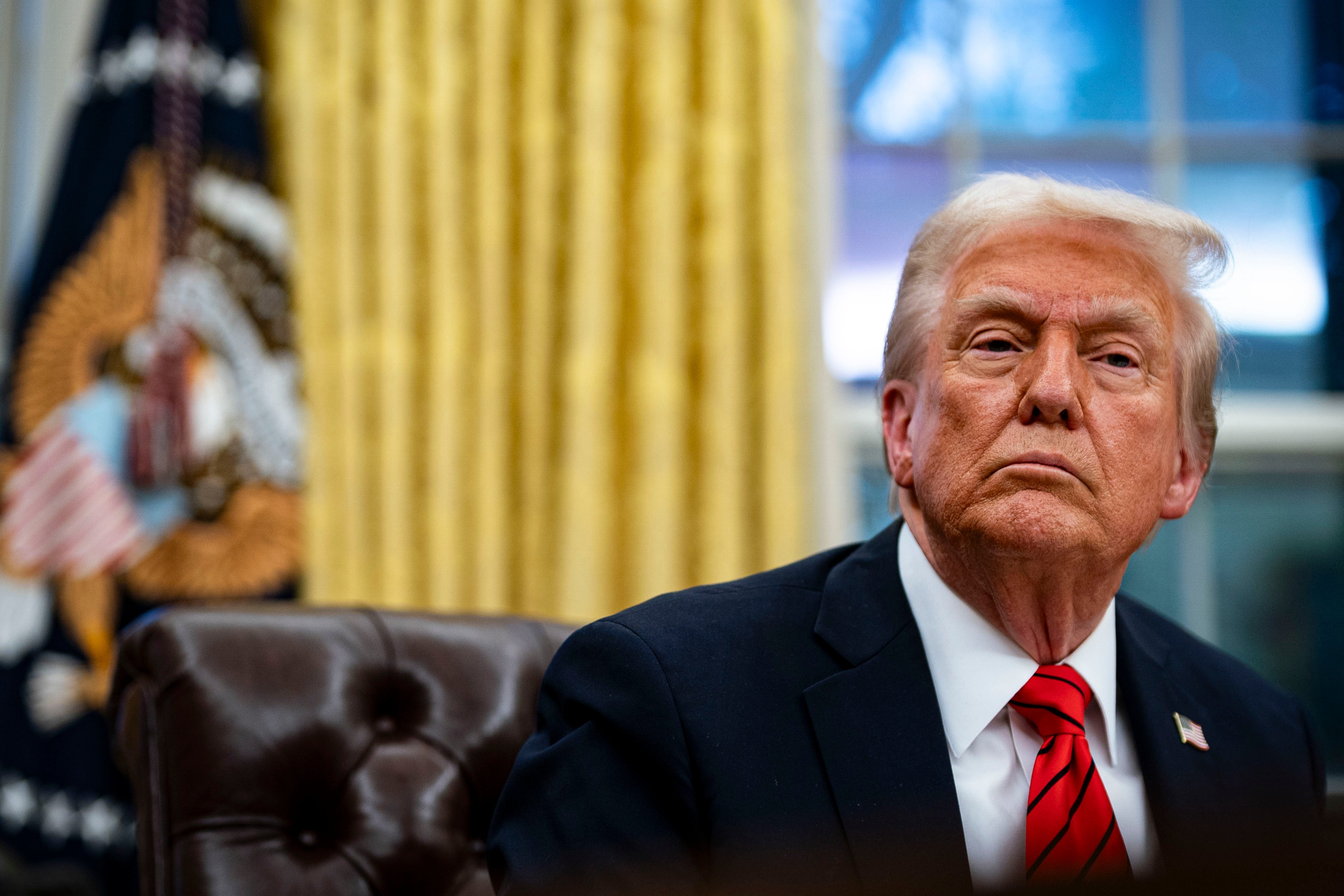
TRUMP’S BOLD Move: Meeting Putin in Saudi Arabia Sparks Debate
— Former President Donald Trump announced plans to meet Russian President Vladimir Putin in Saudi Arabia. This follows a phone call about the Ukraine conflict. Trump’s statement comes as U.S.-Russia tensions rise and peace talks continue.
Trump stressed the need to engage with global leaders to ease hostilities. He called Putin a “smart player” and suggested direct talks could lead to progress on Ukraine. Reactions are mixed, with some supporting his diplomatic approach and others criticizing potential normalization with Russia during its military actions in Ukraine.
Analysts are watching this possible meeting closely, as it might signal a shift in U.S. policy towards Russia under the current administration. The situation in Ukraine remains contentious globally, with U.S. allies backing Ukrainian forces against Russian aggression.
Trump’s remarks come amid Republican debates on future foreign policy directions and relations with Russia, highlighting differing views within the party on how best to handle international conflicts like Ukraine’s ongoing crisis.

TRUMP’S Bold Gaza Plan: A Shocking Twist In US Policy
— President Donald Trump has sparked controversy by suggesting the United States take control of the Gaza Strip. His plan includes relocating Palestinians, which has drawn global criticism. National Security Adviser Mike Waltz tried to calm concerns, reaffirming U.S. support for a two-state solution despite Trump’s remarks.
This proposal is a major shift from long-standing U.S. policy on the Israeli-Palestinian conflict and could increase regional tensions. Trump’s comments came during a meeting where he emphasized American intervention in Gaza, advocating for Palestinian relocation — a stance met with international outrage.
Critics argue this approach could have severe humanitarian consequences for Gaza’s residents and further destabilize an already volatile region. International leaders and activists have voiced strong opposition to what they see as an aggressive change in American foreign policy under Trump’s leadership.

TRUMP’S Bold Move: Halting AID to South Africa Over Land Seizure Fears
— President Donald Trump announced plans to stop all foreign aid to South Africa, citing concerns over alleged land confiscation and human rights abuses. Trump took to Truth Social, calling it a “massive Human Rights VIOLATION” that the media ignores. He insisted the U.S. would not tolerate it and demanded a full investigation before any aid resumes.
South African President Cyril Ramaphosa denied any land confiscation occurred. He expressed openness to dialogue with the Trump administration on land reform policies and mutual interests. Ramaphosa stressed that expropriation would involve fair compensation for public purposes, though no actions have been taken yet.
The controversial bill signed by Ramaphosa permits authorities to expropriate land for public use with just compensation, raising alarms about private property rights erosion. Critics warn this could destabilize South Africa’s economy and international relations if mishandled.
Pieter du Toit of News 24 suggested Trump’s remarks were misguided, possibly influenced by Elon Musk’s advice. The situation has ignited debate over U.S.-South Africa relations and global views on South African policies under Ramaphosa’s leadership.
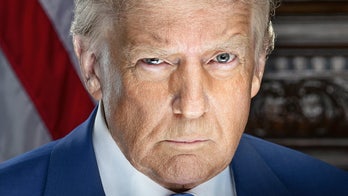
TRUMP’S Bold Return: Global Alliances Shaken
— President Donald Trump has re-entered the White House, quickly overturning Biden-era policies and pulling out of major international agreements. His actions have left global partners unsure about their standing. Allies and adversaries are closely watching how Trump’s second term will unfold on the world stage.
In his first 100 hours, Trump signed executive orders, including one labeling Mexican cartels as foreign terror organizations. Italy’s Prime Minister Giorgia Meloni met with Trump at Mar-a-Lago and attended his inauguration, supporting his push for increased NATO defense spending. Meloni is seen as a key EU contact amid fears of a potential trade war with Europe under Trump’s leadership.
Hungary’s Prime Minister Viktor Orban, a long-time ally of Trump, expressed excitement for Trump’s return to office but missed the inauguration due to scheduling conflicts. Orban sees this as an opportunity to challenge what he calls Brussels’ "left-liberal oligarchy.
Argentina’s President Javier Milei seeks stronger U.S.-Argentina relations under Trump’s presidency. At the Davos World Economic Forum, Milei hinted at leaving the Mercosur trade bloc if it means securing a new trade deal with the U.S., highlighting shifting alliances in response to Trump’s policies.

TRUMP’S Bold Gaza Plan Stirs Global Debate
— President Donald Trump suggested relocating over a million Palestinians from Gaza to nearby countries, causing a stir. He talked about this idea with Jordan’s king, proposing housing projects in Jordan and Egypt. This is a big change from the usual U.S. support for a two-state solution between Israel and Palestine.
Jordan’s state news agency confirmed Trump’s call but didn’t mention moving Palestinians. The proposal questions decades of foreign policy and raises concerns about its practicality and acceptance by regional partners.
Egypt and Jordan are likely to reject Trump’s idea, despite their strong ties with the U.S. Both countries have historically been against taking in many Palestinian refugees due to political and social issues within their borders.
Trump’s comments have sparked debates worldwide, showing tensions between old diplomatic strategies and new ideas under his leadership. The plan highlights ongoing challenges in Middle Eastern politics as stakeholders consider its impact on regional stability.

— Trump hints at military action to secure Panama Canal and Greenland The president-elect emphasized the importance of US control over both regions for national security, stating he won’t dismiss the use of force
— Trump Seeks Momentum After Tough Debate with Harris The former president aims to regain support as the countdown to Election Day reaches 55 days

— US Urges Hamas Ceasefire Acceptance Following Israeli Support Secretary of State Antony Blinken reveals Prime Minister Netanyahu’s backing for ceasefire bridging proposal to end hostilities and secure release of Israeli captives
— Trump and Harris Set for Debate Showdown as Network Confirms Agreement
— BREAKING: Donald Trump’s Sentencing Delayed in Hush Money Case, Providing Significant Relief for the Former President
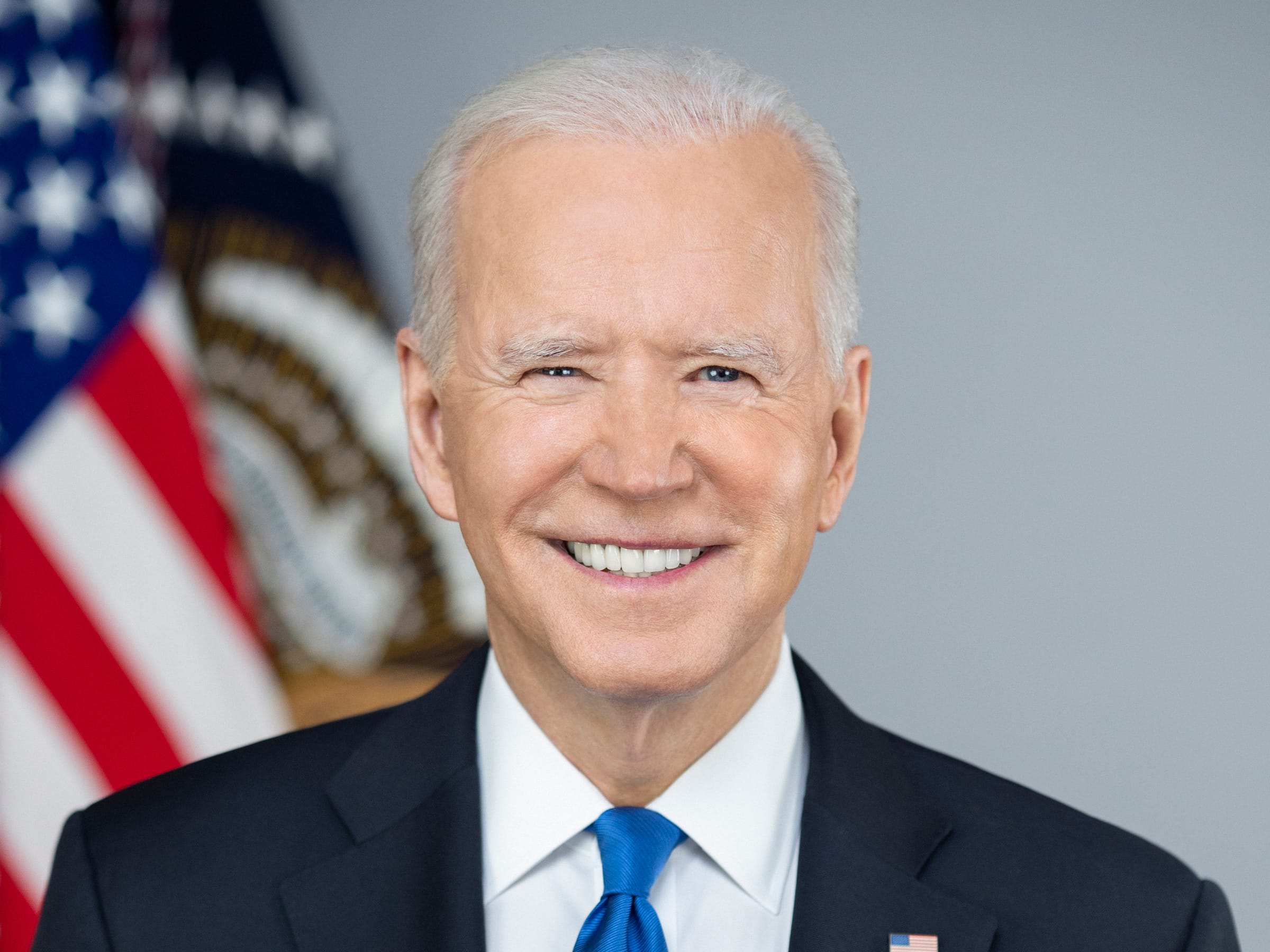
BIDEN-XI Summit: A Bold Leap or a Blunder in US-China Diplomacy?
— President Joe Biden and Chinese President Xi Jinping have committed to keeping direct lines of communication open. This decision follows their lengthy four-hour discussion at the 2023 APEC summit in San Francisco. The leaders unveiled an initial agreement aimed at halting the influx of fentanyl precursors into the U.S. They also plan to restore military communications, which were cut off after China’s disagreement with the Pentagon following Nancy Pelosi’s visit to Taiwan in 2022.
Despite rising tensions, Biden made efforts during Wednesday’s meeting to strengthen U.S.-China relations. He also vowed to persistently challenge Xi on human rights issues, arguing that frank discussions are “critical” for successful diplomacy.
Biden voiced positivity about his rapport with Xi, a relationship that began during their vice-presidential terms. However, uncertainty looms as a congressional investigation into COVID-19 origins threatens US-China relations.
It is unclear whether this renewed dialogue will result in substantial progress or further complications.

Video
HAMAS OFFERS Truce: A Bold Shift Towards Political Transformation
— In a revealing interview, Khalil al-Hayya, a top official from Hamas, announced the group’s readiness to halt hostilities for at least five years. He detailed that Hamas would disarm and rebrand as a political entity upon the establishment of an independent Palestinian state based on pre-1967 borders. This represents a drastic pivot from their previous stance focused on the destruction of Israel.
Al-Hayya elaborated that this transformation hinges on forming a sovereign state that includes both Gaza and the West Bank. He discussed plans for merging with the Palestine Liberation Organization to establish a unified government and transforming their armed wing into a national army once statehood is achieved.
However, skepticism remains about Israel’s receptiveness to these terms. After lethal attacks on October 7, Israel has toughened its position against Hamas and continues to oppose any Palestinian state formed from territories captured in 1967.
This shift by Hamas could either open new avenues for peace or be met with stiff resistance, highlighting ongoing complexities in Israeli-Palestinian relations.


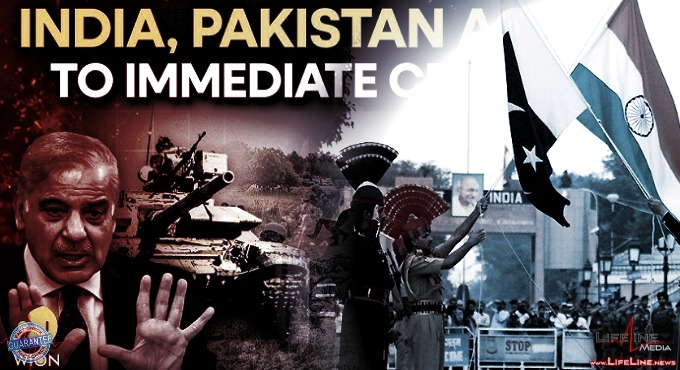
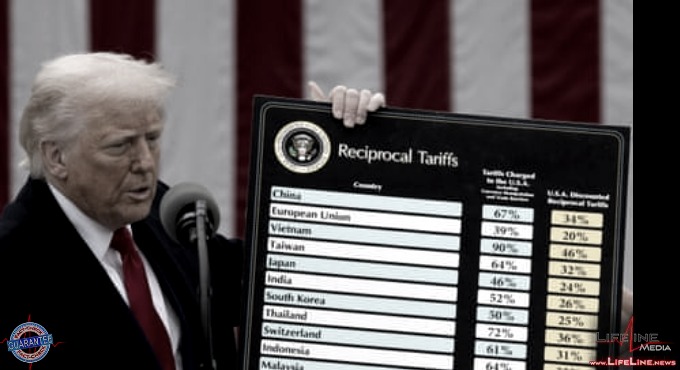
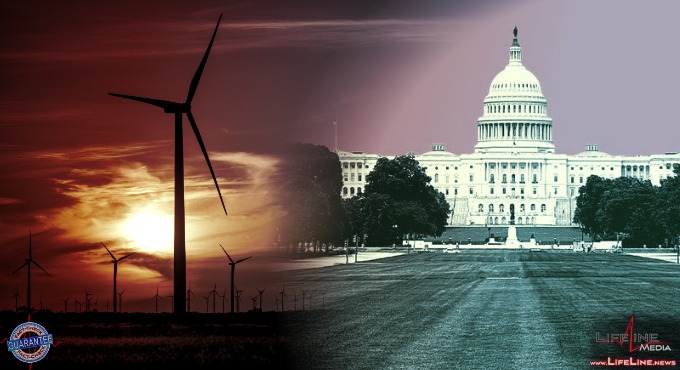
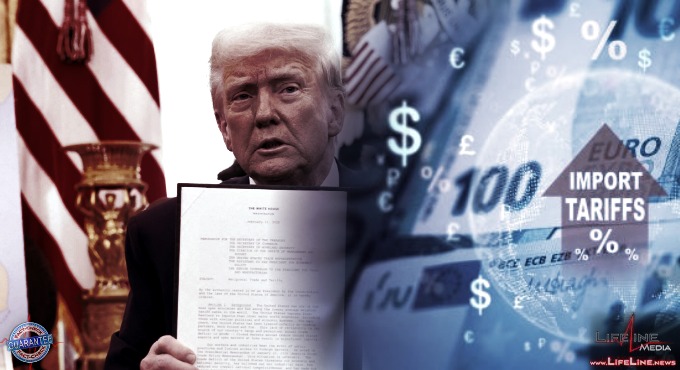
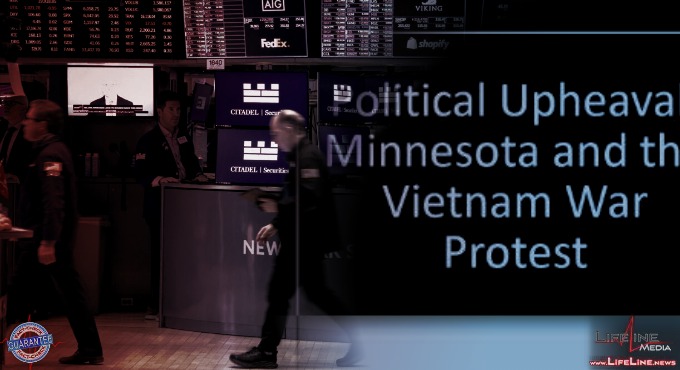
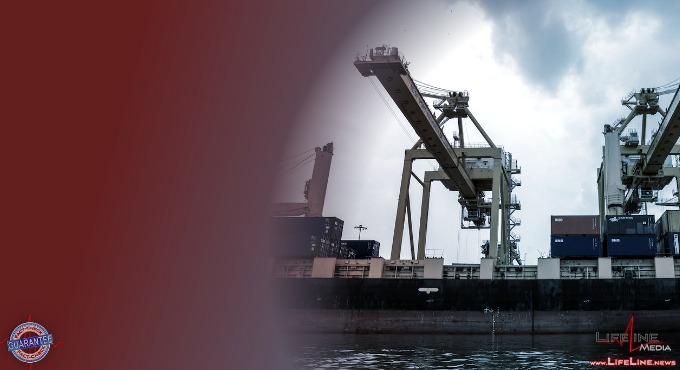
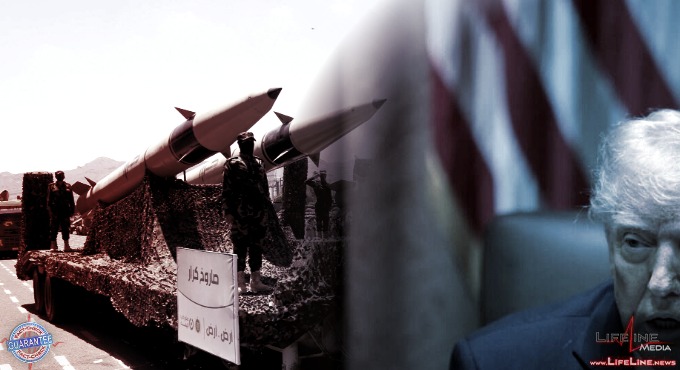
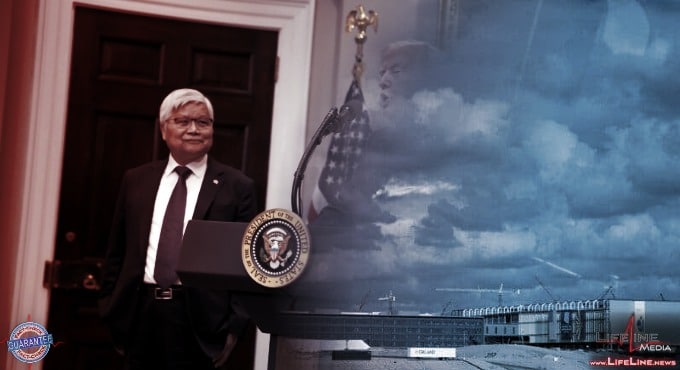
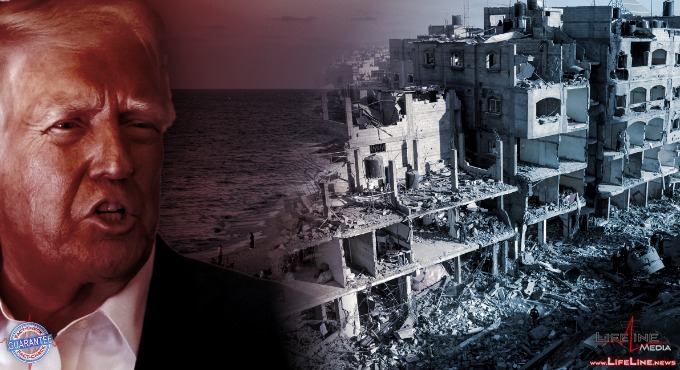
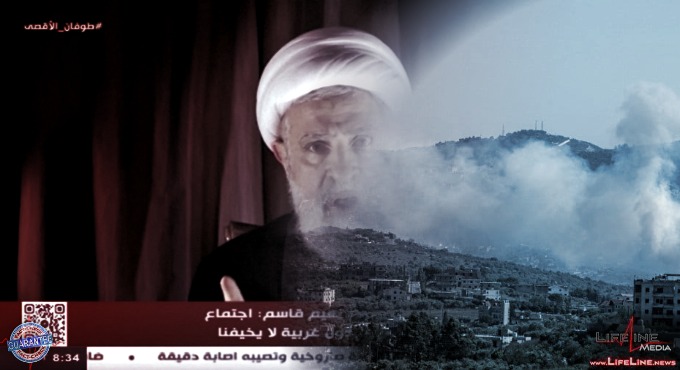
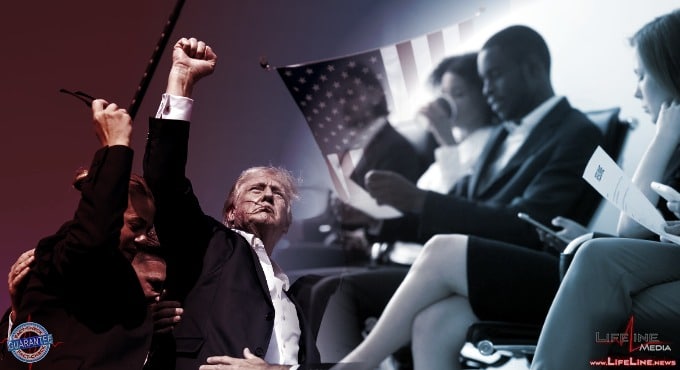
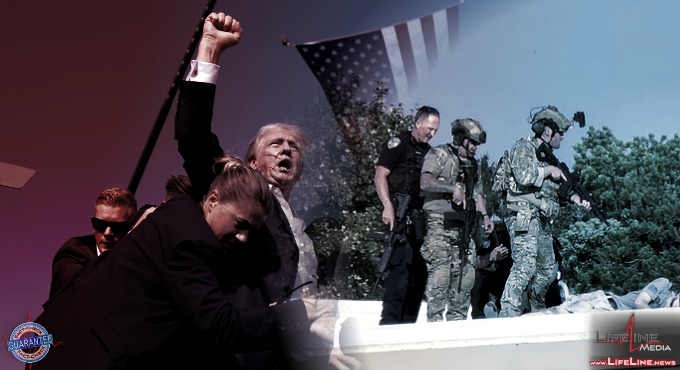

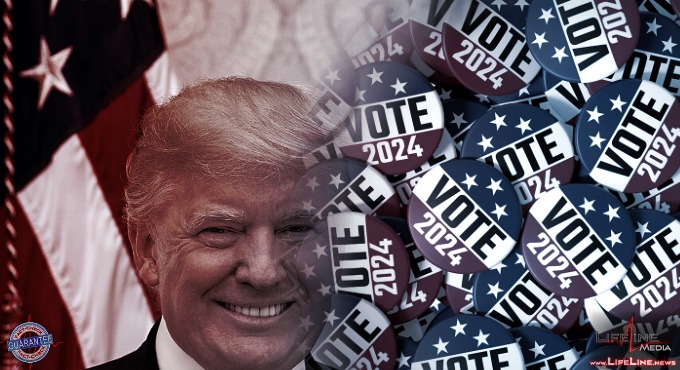


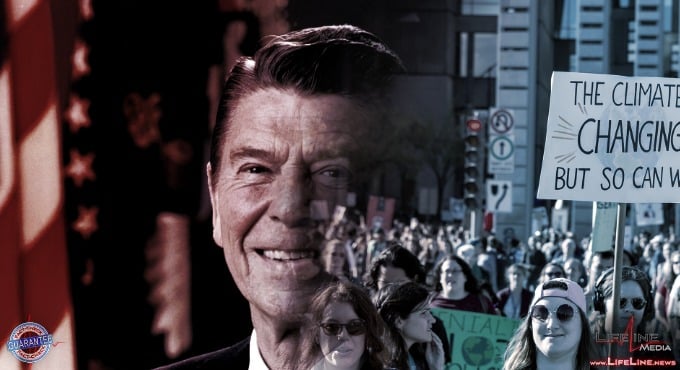
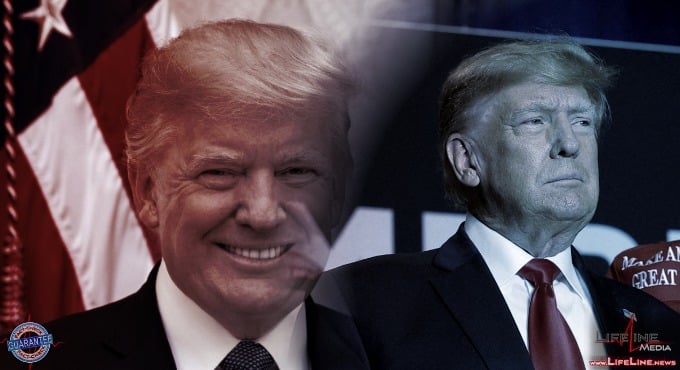
Social Chatter
What the World is SayingThank you @POTUS Trump and @SecRubio for correcting this historic mistake and for a unified diplomatic mission in our unified eternal capital, Jerusalem.
. . .Congratulations to the US and Ukraine on a historic minerals deal - committing the US to a “free, sovereign and secure Ukraine.” There is only one man still blocking peace on those terms,...
. . .Congratulations to the US and Ukraine on a historic minerals deal - committing the US to a “free, sovereign and secure Ukraine.” There is only one man still blocking peace on those terms,...
. . .The Trump Ukraine mineral deal is a very good one for Ukraine. America has a vested interest in its security going forward. Putin now must think twice before taking more territory. It is also...
. . .THE TRUMP EFFECT: $8 TRILLION in U.S. Investments and Climbing! 🇺🇸💰
. . .